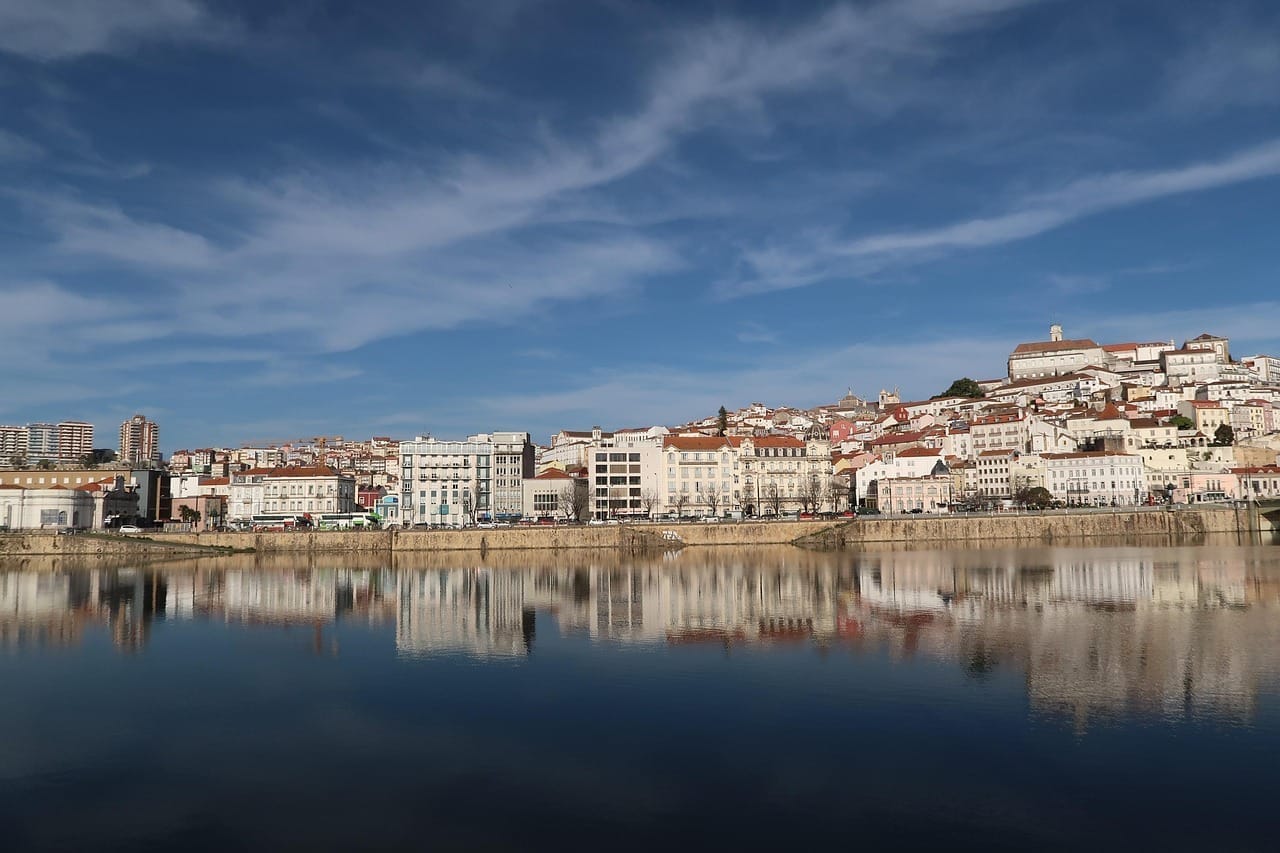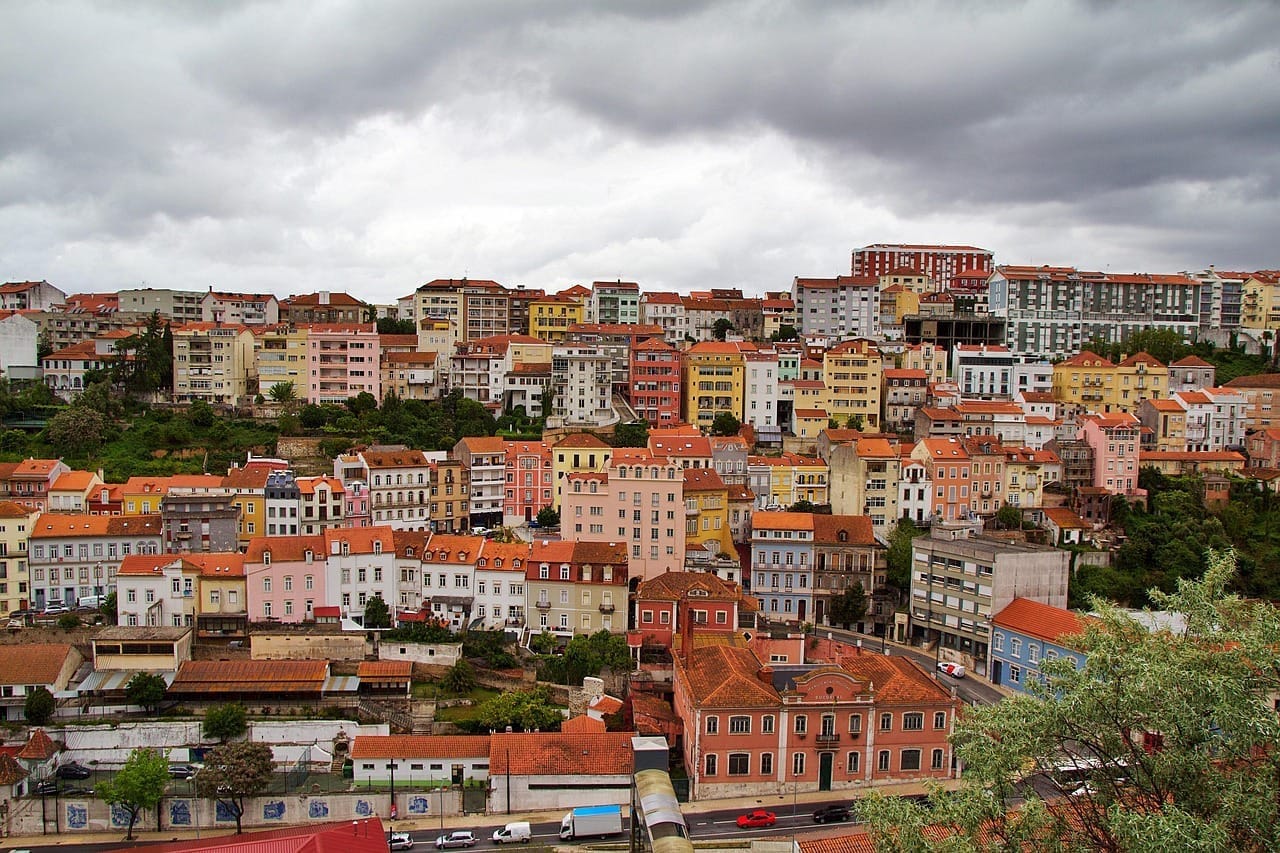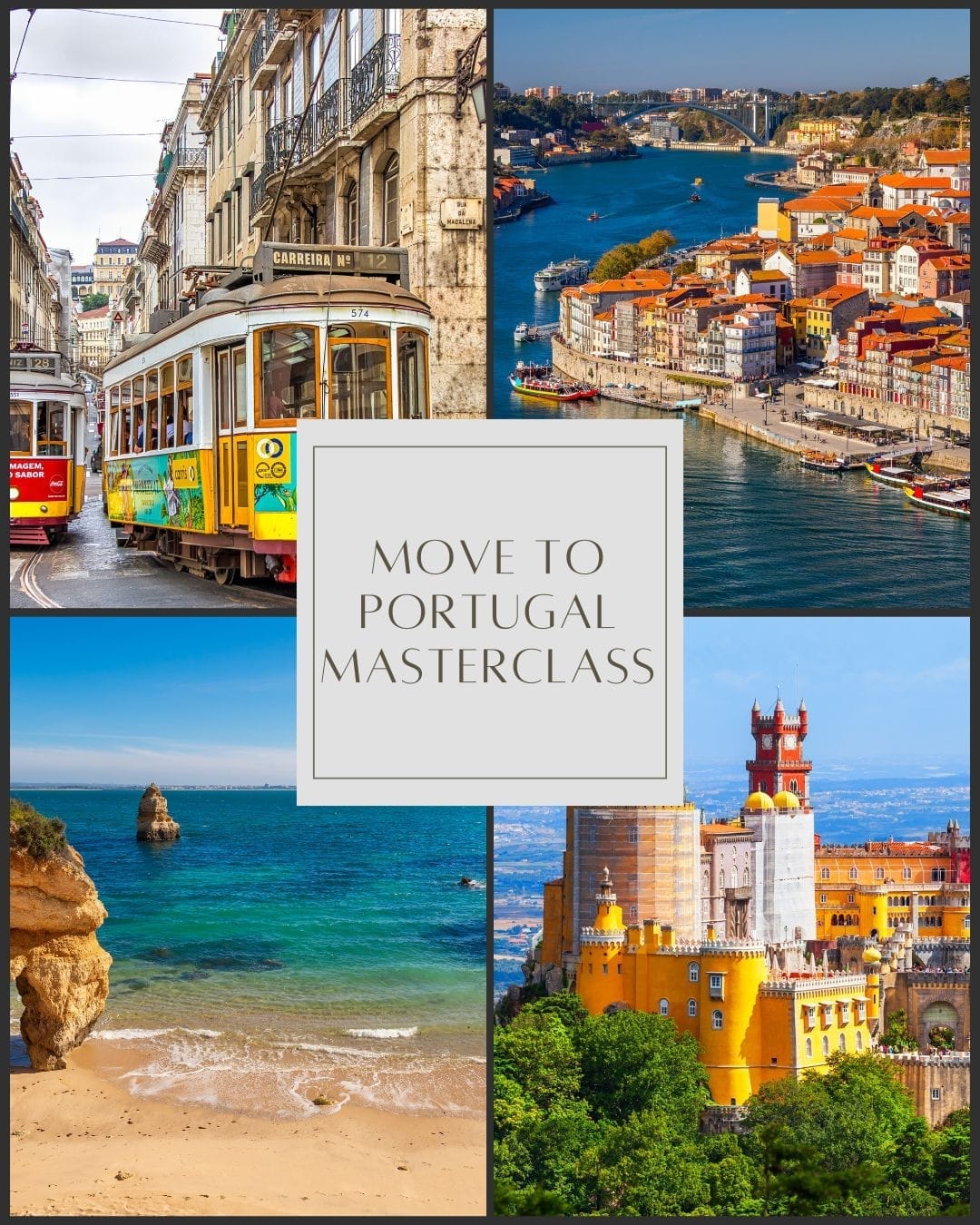
Retiring in Portugal: What I Learned After One Year in Coimbra

When I left Calgary a year ago, I had spreadsheets full of research, a detailed budget, and what I thought was a solid understanding of what retiring in Portugal would be like. After twelve months in Coimbra, I can tell you that the reality has been both better and more complicated than I anticipated. Here's what I've learned that you won't find in the glossy expat blogs.
The Residency Process: Patience Required
The Portuguese D7 visa process appears straightforward on paper, but its implementation varies significantly depending on the location of your application. I applied through the Portuguese consulate in Toronto, and the timeline stretched from three to seven months due to documentation requirements that weren't initially clear and a backlog in the system.
The key documents you'll need include proof of passive income, a Portuguese bank account statement, a rental agreement or property deed, Portuguese health insurance or proof of coverage, a criminal record check from your home country, and authenticated copies of your passport. Every document must be apostilled, and some consulates require translations by certified Portuguese translators, not just any translator.
What surprised me most was the requirement for a rental agreement. You need a Portuguese address before you can complete your application, but most landlords won't hold a property for months while you wait for visa approval. I solved this by negotiating a six-month lease with a clause allowing early termination if my visa was denied. It cost an extra month's rent upfront, but it secured the property and satisfied the consulate.
Once you arrive in Portugal, you'll need to register with your local municipality and apply for your residence card at the nearest AIMA office. This second phase took me another three months. The system is understaffed, and appointments can be scarce. I suggest booking your AIMA appointment the moment you have a confirmed arrival date in Portugal.
Healthcare: Better Than Expected, But Different
Portugal's healthcare system has been one of the pleasant surprises of my first year. The public system, Serviço Nacional de Saúde, is comprehensive and remarkably affordable, though wait times for specialists can be lengthy. I opted for private health insurance through a Portuguese provider, which costs me approximately €85 per month and provides access to private clinics and hospitals with minimal wait times.
The quality of care has been excellent. My primary care physician in Coimbra completed his training in London and speaks fluent English, though I've been working on my Portuguese for medical appointments. Prescription medications are significantly cheaper than in Canada. My blood pressure medication, which costs me 60 Canadian dollars monthly in Calgary, costs 12 euros here.
One adjustment has been the different approach to preventive care. Annual comprehensive physicals aren't standard practice here. Instead, you schedule specific appointments based on symptoms or concerns. It took me several months to understand that I needed to be more proactive about requesting specific tests and screenings.
For retirees with pre-existing conditions, Portugal can be challenging initially. Establishing care relationships takes time, and transferring medical records requires persistence. I recommend bringing at least six months of medications with you when you move, along with complete medical records and a letter from your home doctor detailing your treatment history.
Ready to make your move to Portugal?
Our comprehensive
'Move to Portugal Masterclass'
This online course covers everything you need to know—from visa applications and tax planning to finding housing and building your local network. Learn from entrepreneurs who've successfully made the transition and avoid costly mistakes.
The Real Cost of Living
Most retirement guides quote average costs that bear little resemblance to actual expenses. After tracking every euro for twelve months, here's what life actually costs me in Coimbra as a single retiree living comfortably but not extravagantly.
Housing is my largest expense. I rent a two-bedroom apartment in the city center for €650 per month. This is significantly higher than apartments in the outskirts, which start around €450, but the walkability and proximity to services matter to me at my age. Utilities, including electricity, water, internet, and a mobile phone plan, add an additional €120 per month. Portuguese electricity costs have risen substantially, particularly during the winter months when heating is necessary.
Food costs depend entirely on your shopping habits. I spend approximately 300 euros monthly on groceries, shopping primarily at Continente and local markets. Eating out regularly can quickly double this figure. A decent restaurant meal costs between 12 and 20 euros, coffee runs 1 to 1.50 euros, and wine is pleasantly affordable at 3 to 7 euros per bottle for quality options.
Transportation costs are minimal if you don't own a car. I use public transportation and occasionally take taxis, spending around €50 per month. Coimbra is extremely walkable, and I've found myself driving far less than I did in Calgary. For retirees considering car ownership, factor in higher fuel costs, insurance, and annual vehicle inspection fees.
My total monthly expenses average 1,450 euros, including housing, utilities, food, transportation, health insurance, and discretionary spending. This is comfortable middle-class living, not budget travel or luxury lifestyle. I maintain emergency reserves and travel occasionally within Europe, which adds an additional €200 to €300 per month, averaged across the year.
Banking and Financial Logistics
Opening a Portuguese bank account is mandatory for residency, but surprisingly complicated. Most banks require proof of address, which creates a circular problem since you need a bank account to rent many apartments. I solved this by using a friend's address initially, then updating my account once I had my own lease.
I maintain accounts with both Millennium BCP and Caixa Geral de Depósitos. Portuguese banking feels decidedly old-fashioned compared to Canadian digital banking. Online banking is available, but it is less robust, and many transactions still require in-person visits. Monthly account fees range from €0 to €10, depending on your account type and balance.
International transfers require careful planning. I keep my Canadian pension and investment accounts in Canada and transfer funds quarterly to minimize currency conversion fees. I use Wise for transfers, which offers better exchange rates than traditional banks. The process takes two to three business days, and I've learned to time transfers to avoid month-end exchange rate fluctuations.
Tax considerations are complex. I hired a local accountant who specializes in expat taxation, which costs me €400 annually but provides invaluable guidance on compliance and optimization. Don't attempt Portuguese tax filing without professional help unless you're fluent in Portuguese and familiar with the system.

Language and Integration
I arrived with a basic knowledge of Portuguese, learned from apps and online courses. After one year of intensive study and daily practice, I have become conversational, but still far from fluent. Portuguese pronunciation is challenging, and the European Portuguese spoken here differs significantly from Brazilian Portuguese.
In Coimbra, English is common enough to manage daily life, but full integration requires proficiency in Portuguese. Government offices, healthcare appointments, and building meaningful friendships all demand language skills. I attend weekly Portuguese classes at the university, participate in a language exchange program, and force myself to conduct errands in Portuguese even when English would be easier.
The local community has been welcoming but not overly eager to adopt foreign retirees. Building genuine friendships takes effort and cultural sensitivity. I volunteer at a local charity, joined a walking group, and regularly attend cultural events. These activities have created social connections that extend beyond the expat bubble.
The expat community in Coimbra is smaller than in Lisbon or Porto, which I consider an advantage. It forces more interaction with Portuguese residents and reduces the temptation to recreate a Canadian social circle abroad. However, having some English-speaking friends provides crucial support during difficult moments and cultural frustrations.
Climate and Seasonal Realities
Portugal's reputation as a warm, sunny destination is earned but incomplete. Coimbra's winters are mild by Canadian standards but surprisingly damp and chilly. Indoor temperatures drop significantly because most buildings lack central heating and have poor insulation. I invested in a good space heater and thermal clothing, which I wear indoors regularly from November through March.
Summer heat is intense but manageable. Temperatures regularly exceed 35 degrees Celsius in July and August, and air conditioning is uncommon in residential buildings. I've adapted by adopting local habits, including taking afternoon siestas, closing shutters during peak heat, and conducting errands early in the morning or evening.
The climate has significantly improved my joint pain and overall energy levels compared to those in Calgary during the winter. The ability to walk outdoors comfortably most days of the year has significantly enhanced my physical health and mental well-being. This health benefit alone justifies the move for me.
Unlock the secrets of the world's most successful entrepreneurs with the
Global Wealth Navigator Newsletter
Discover the world's best destinations offering a lower cost of living paired with an enriched quality of life with the Global Wealth Navigator Newsletter. Whether you're a retiree or an entrepreneur, we dive into strategies that open doors to international investments, tax optimizations, and discover the finest destinations offering a superior quality of life. Don't let borders or routine define you; lets find your ideal spot in the world, regardless of your income bracket.
What I Wish I'd Known
Several practical matters would have been easier if I'd understood them beforehand. Portuguese bureaucracy moves slowly and requires patience. Appointments must be scheduled weeks in advance, and walk-in service is rare. Bring every document you might need, along with copies, to every appointment. The response to missing paperwork is never to proceed without it.
Online services work inconsistently. Many government websites require Portuguese identification numbers that foreign residents don't immediately receive. Some processes remain entirely paper-based. I've learned to allocate full mornings to administrative tasks that would take thirty minutes online in Canada.
Building maintenance and repairs follow a different timeline. Scheduled appointments are approximate, and same-week service is unusual unless you're experiencing an emergency. I've adjusted my expectations and learned to plan around longer wait times for routine maintenance.
Cultural pace and priorities differ substantially from those in North America. Meals are longer and more social. Shops close for lunch. Sunday is truly a day of rest when most businesses are closed. This slower pace was initially frustrating but has become one of the aspects I appreciate most about Portuguese life.
The Verdict After One Year
Retiring to Portugal has met my primary objectives. My cost of living is lower, my quality of life is higher, and I have access to excellent healthcare. The weather suits me better, and the proximity to European travel opportunities has been wonderful. I've taken weekend trips to Spain, visited family in the UK, and explored Portugal extensively.
The challenges have been real but manageable. Bureaucracy requires patience. Language learning demands ongoing effort. Cultural adjustment takes time. Financial logistics need careful planning. None of these obstacles are insurmountable for someone prepared to approach retirement abroad as a long-term project rather than an extended vacation.
Would I make the same decision again? Absolutely. But I would approach it with more realistic expectations about the timeline for full integration and the ongoing nature of cultural adaptation. Retiring abroad isn't a finish line but an ongoing process of learning and adjustment.
For engineers and analytical thinkers considering this move, approach it methodically. Research thoroughly, plan conservatively, and build financial buffers larger than you think necessary. Visit multiple times before committing. Learn basic Portuguese before arriving. Understand that spreadsheets and planning can only take you so far, and the real learning begins when you actually live here.
Portugal offers an excellent option for retirement, particularly for those seeking a mild climate, affordable living, quality healthcare, and European access. Success requires realistic expectations, adequate financial resources, a willingness to learn the Portuguese language, and patience with bureaucratic processes. If you can meet these requirements, Portugal rewards you with a high quality of life at a reasonable cost.
Ready to Take the Next Step?
If you're seriously considering retirement in Portugal, our comprehensive Move to Portugal Masterclass provides detailed guidance on residency applications, healthcare enrollment, tax optimization, and practical logistics. The course includes step-by-step instructions, document templates, and insider strategies that can save you months of research and potentially costly mistakes.
Ready to make your move to Portugal?
Our comprehensive
'Move to Portugal Masterclass'
This online course covers everything you need to know—from visa applications and tax planning to finding housing and building your local network. Learn from entrepreneurs who've successfully made the transition and avoid costly mistakes.
Greg Howard — The Logical Retiree
Greg, a retired engineer from Calgary, enjoys life in Coimbra. His analytical yet friendly approach helps retirees make smart relocation decisions. From residency to healthcare, Greg’s writing builds trust with readers who value careful planning and stability.
📍 From Calgary, now in Coimbra
Greg writes with clarity and precision, helping readers navigate retirement, healthcare, and residency in Portugal with confidence.
Read Articles by Greg →
Global Citizen Life
© 2023 Global Citizen Life
All rights reserved

